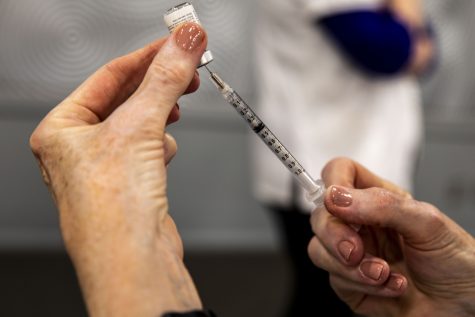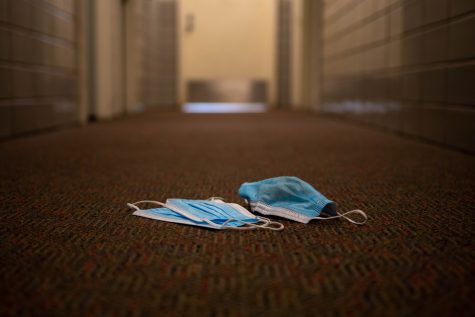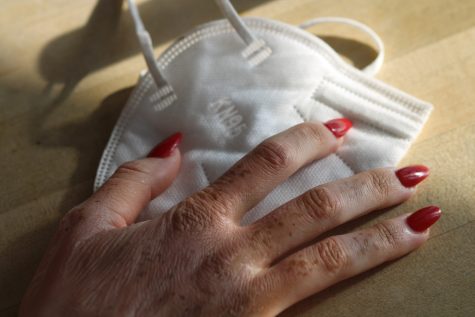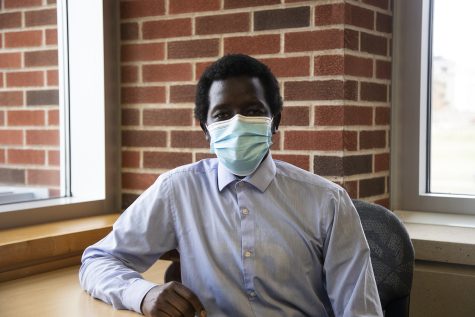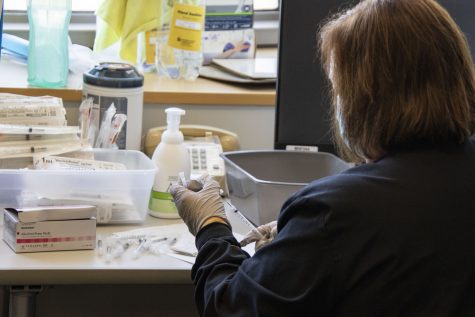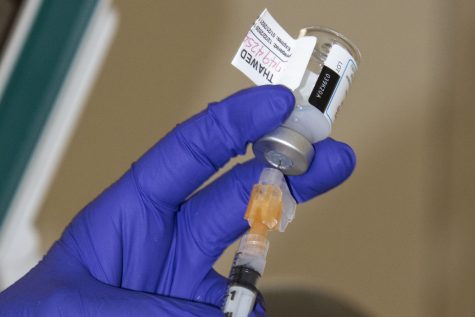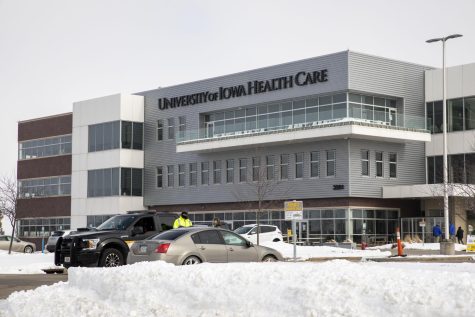Iowa director of human services says domestic violence reports are decreasing, but the violence is not
During Gov. Kim Reynolds’ daily press conference, she focused on the issue of domestic violence while partners and families may be self isolating together. There are reported outbreaks in food processing plants and additional long-term care facilities, while minority communities are disproportionately affected.
Gov. Kim Reynolds gives the Condition of the State address at the Iowa State Capitol on Tuesday, January 14, 2020.
April 15, 2020
The director of the Iowa Department of Human Services said during Gov. Kim Reynolds’ Wednesday press conference that reports of domestic violence have dropped now that children and families are not interacting with mandatory reporters.
“We don’t believe the abuse has gone away, but the reports have,” said Kelly Garcia, the director.
While Iowa has seen an outbreak in COVID-19 cases in a food processing plant in Columbus Junction and a surge in cases in a seventh long-term care facility, Reynolds chose to highlight the issue of domestic violence while families and partners may be self isolating together.
Garcia said the IDPHS suspended premiums and copays for families covered under Medicaid, expanded support for behavioral healthcare, and expanded telehealth resources. The Iowa Department of Education also expanded its summer meal program, so they can begin delivering meals to children now.
Now that children are no longer physically in school, Garcia said teachers and other mandatory reporters are not able to identify the signs of abuse. She said schools will begin making comfort calls to check in on families.
“DHS is truly an agency that has been impacted from top to bottom by the COVID-19 pandemic,” Garcia said. “Anytime there is a disaster, mental-health needs for Iowans change.”
As of April 15, there are 96 new cases in Iowa and 908 Iowans recovered, making the recovery rate 46 percent. There have been four additional deaths for a total of 53 deaths.
On April 14, the most positive cases for a single day were reported, with 189 Iowans testing positive, and 86 of those cases were connected to a Tyson food processing plant in Columbus Junction. Reynolds said the Iowa Department of Public Health has been in constant contact with these facilities to make sure they’re taking the proper precautions to contain the spread.
Reynolds said the state is sending an additional 900 tests to the Tyson plant in Louisa County, and if a facility is seeing more than 10 percent of its population out of work due to an illness, they have to report it to the IDPH.
“This is an essential infrastructure,” Reynolds said of the food processing plants. “This is about feeding not only Iowans, but the world, and so they know that they have a responsibility to take care of their employees.”
Reynolds said there are 18 food processing plants across the state, and that they have made initial contact with each one to ensure they are taking proper measures. She said the Iowa Department of Agriculture visits each site for routine inspections.
Similar to the rest of the country, Iowa is seeing black and Latinx communities being disportionately affected by the coronavirus. Deputy Director of the Iowa Department of Public Health Sarah Reisetter said that this can be in part attributed to these communities having a higher rate of underlying health conditions and more of them work industry jobs.
Reynolds said they are still looking at data relating to this issue, but that she’s working with the Iowa Department of Human Rights to translate coronavirus information into other languages for the state’s website at the request of the League of United Latin American Citizens in Iowa.






